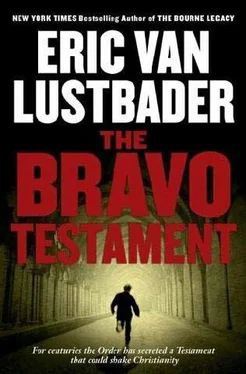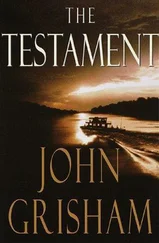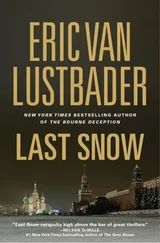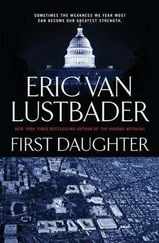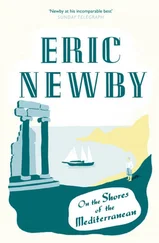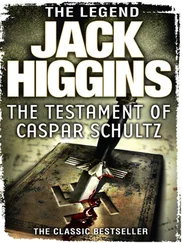"But what you say is monstrous. She of all people-"
"She of all people, yes. Distrusted and abused by the Order, she had plenty of motivation to betray us."
Zorzi shook his head. "But not me, she would never betray me. There must be another explanation."
"Tell it to me, please."
There was no response from Zorzi, who turned away, hands clenched into fists. Far out, Bravo could see a boat, but through the heat haze it looked like a mirage or an ancient Roman trireme. The lagoon was as flat as a desert, why shouldn't it produce mirages? He thought of Jenny-the look in her eyes, the smell of her skin, the feel of her hair. The degree to which he had relied on her was only now becoming apparent, and this reliance had led him to let down his guard with her. Had his father done the same? Had she gotten under Dexter's skin the way she had gotten under his? Father Mosto was certain of it. "I am afraid of her," he'd said, "because she was able to get to Dexter in a way no one else could." Jenny had killed him, she was the traitor, as Dexter had feared. Looking into the lagoon, Bravo saw reflected the sky-or was it the sky in which he saw reflected the lagoon? Dizzied, he could no longer tell, everything he had assumed was inverted.
"After what I've done for her…" Zorzi's voice cracked. "I will interrogate her. And if she is guilty, then I will kill her myself."
"I'll be right beside you," Bravo said.
Zorzi turned back to him, his face now appearing more normal. "You'll do nothing of the sort, my friend. You are the Keeper, you know what your mission is. Nothing must deter you or even slow you down. You must find the cache of secrets and keep it safe from the Knights."
"But I don't know where the cache is."
"Don't you?" Zorzi pulled out the steel beggar's purse Bravo discovered inside the alms cabinet. "Step three." He handed it over.
"You took this from me?"
"For safekeeping only, I assure you."
Zorzi's arm was still stretched out and Bravo saw an eagle in midflight tattooed on his forearm.
Seeing the direction of Bravo's gaze, Zorzi chuckled. "I wear the eagle with pride, Bravo. Only six or seven families in all of Venice were allowed to display the eagle or the lily on their coat of arms. My family goes all the way back to the seventh century, further some say, all the way to the founding of Rome."
"Zorzi, yes," Bravo said thoughtfully. "Your family is one of the Case Vecchie, the old houses. The twenty-four founding families of the Republic."
Zorzi raised his eyebrows. "Now I am truly impressed. Few people know this, others disbelieve the claim. Nonetheless, it is valid and binding."
They walked a little farther away along the shore. The sunlight beat down on the water of the lagoon, turning it to the color of molten metal. Shore birds swooped and called amid the rush beds. Farther out were a series of barene, salt-flats-clay and sand, really-deposited over time by the currents, feeding ground for warblers and marsh harriers alike.
"I will leave you to read the tea leaves left for you by your father," Zorzi said, and he strode off toward two of his men some five hundred yards down the islet shore.
Bravo, grateful to be alone during this process, looked at the square lock. It was the same size and depth as the lock in the underwater safe in St. Malo. He inserted the second cuff-link key into the lock, turned it one way, then the other. The steel beggar's purse popped open.
Inside, he discovered a rolled-up slip of paper with another cipher handwritten on it. He studied it carefully. This one was naturally enough of a different and more complex nature than the modified substitution code devised by Caesar. Bravo could see that it required a code book, so it stood to reason that his father had supplied him one.
He took out the small, ratty notebook. It was the only possible place his father would have inscribed the code protocol. Climbing the seawall, he sat on the white stone, looking out into the fog-gripped lagoon. Water and sky were indistinguishable, all was reflection, and once again he was gripped by this sense of inversion, as if Venice itself was a lens through which he was now forced to look.
With an almost obsessive patience, he went through the notebook, searching for page, line and letter numbers, the usual sources for the key to this form of cipher. Of course, he could start by listing the letter frequencies in the encrypted text-for instance, in English e was the most used letter and t the second most used. Each letter of the alphabet had a percentage of frequency. Also, vowels tended to associate with one another-such as ou and ie, whereas consonants rarely did.
Letter-frequency decryption went all the way back to the ninth century. The Arabic scientist Abu Yusuf al-Kindi provided the first known description of it. However, al-Kindi's code-breaking method was most useful in lengthy messages-the longer the encrypted text, the better the letter-frequency method worked-and this text was short. Second, and more important in this instance, was that letter frequency changed depending on which language one was using. For instance, the two most used letters in Arabic were a and l. Bravo knew, however, that there would be no less than five different languages in the text. This was typical of his father, who loved nothing better than to take a classic cipher and stand it on its ear so that it would baffle even an expert code-breaker.
With his eidetic memory, Bravo could, of course, have used these methods to laboriously try to break his father's cipher, but he had neither the time nor the confidence that he would be successful. Therefore, he required the key.
Once again, he went through the notebook, this time from back to front. On one page near the middle of the notebook, he came across the note, "There must be a reason for all this movement." By itself, it meant nothing, but on the next page forward, he came across the same sentence reversed, as if his father was working out a new cipher. When it came to ciphers, his father loved inversions. Bravo might not have noticed this one had he not been leafing through the notebook from back to front. Taking out a pen, he put the two sentences together, one right beneath the other. There were letters that lined up: t and e, which was interesting if one were thinking of letter-frequency decoding, but Bravo knew this was just the sort of false lead his father loved to insert into his cipher keys. But it was a clue that the key was a variant of the 3DES, the triple Data Encryption Standard, developed in the mid 1970s. E was the fifth letter of the alphabet, t, the twentieth. Subtracting 5 from 20 left 15. Subtracting 2, for the two letters, e and t, left him with thirteen. M was the thirteenth letter of the alphabet. He turned his attention to the m, which was the sixth letter in the first sentence, the fourth in the second sentence. He added the two, then subtracted the number of matching letters that came before the m's. The result was eight. He had his key.
Bent over, he moved through the cipher. When he was done, this is what his father had left him: "Remember where you were the day you were born and the name of your third pet."
He'd been born in Chicago, but try as he might he couldn't figure how he could possibly connect that with anything in Venice. At length, he went on to the next bit. His third pet had been a dog-a stray mutt so disheveled-looking he'd called her Bark. So he had one piece of the puzzle his father had meant for him to solve.
Remember where you were… He was born in St. Mary of Nazareth Hospital.
But how could that help him? There must be over a thousand statues of Mary in the city, and, in any event, what possible connection could Mary of Nazareth have with the word bark?
He looked up. The afternoon had slipped away. A cool breeze, marking the onset of sunset, ruffled his hair. His shirt was stuck to his back. With a sigh, he closed the notebook and placed the coded paper back in the alms box. Then he clambered down off the seawall in search of Paolo Zorzi.
Читать дальше
